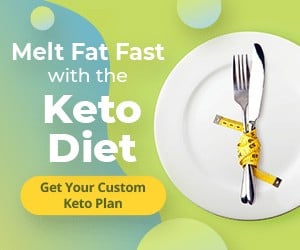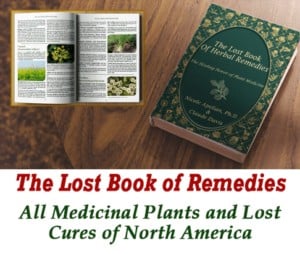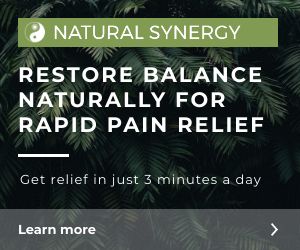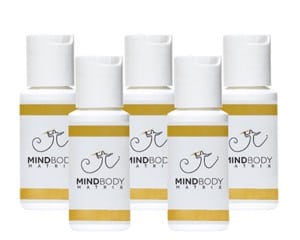
The Rise of Organic Food
With the rise of organic agriculture, many people also question its credibility as a healthier alternative.
Additionally, since its practices are controlled by the government, organically-grown products may sound more appealing and reliable to the general public.
So, what are these practices that make organic agriculture so interesting?
Simply speaking, they provide consumable products that were grown without the presence of chemical agents such as toxic pesticides, synthetic fertilizers, or genetically modified organisms (GMOs).
Hence, these products earned the name organic food as they are all manufactured naturally.
In addition, organic food also comes from healthy soils since its farmers are well-aware of the methods and nutrients they provide for a better-tasting crop.
Organic farmers practice cover crops since this builds the soil’s health by retaining its nutrients, as well as controlling soil erosion by reducing weed in its crops.
Another known method of organic farming is dense planting. This is used by organic farmers since it also helps with weed control by using mass planting as a means to keep direct sunlight off the crop’s soil.
These methods mutually benefit both the crop and the environment since the farm’s impact is less hazardous, as compared to that of the chemically-grown products.
Nevertheless, as engaging as this may all be, consumers should still be aware of the pros and cons of organic food before making a drastic change to their lifestyles.
Organic Food and Its Drawbacks
- The Choices Are Limited
As there are different organic agriculture protocols in every country, this also determines the level of supply and demand for organic food.
In line with this, to maintain strict procedures, the respective farmers from each organic farm must meet the standards in ensuring the quality of the organic product.
This is because organic food tends to rot faster than those that are conventionally grown.
With the help of the government’s health authorities, the process of monitoring organic food is a long and arduous journey to provide fresh products for the customers.
Thus, depending on your location, it may be difficult to see a variety of organic foods in your local grocery store.
- Not Socioeconomic-Friendly
Because of its strict protocols and limited supply of products, organic farming equates to more labor for organic farmers.
This can also be the reason why there are only a few farms that produce organic products as compared to conventional farming.
In addition, poor and developing countries may not benefit from this trend since the supply produced by organic farming may not be accessed by everyone in their population.
As such, this may also lead to more hunger and poverty since everyone relies on the products of local farmers, and cannot afford to wait for naturally harvested crops.
- Exploited Organic Labels
Despite its commercialized use of non-toxic produce, consumers must still be wary of fake organic products.
This is because some companies may take advantage of the rising popularity that comes with organic foods.
As such, it is extremely important to know the pros and cons of organic food before getting into its lifestyle.
Some necessary steps when shopping at the grocery is to know the logo of the farms that produce organic food in your country.
By doing this, you are ensuring the credibility of your products, as well as practicing your rights as a consumer since a lot of self-made labels are being sold in the market nowadays.
- Shorter Shelf Life
Having to purchase products repeatedly, within a week, is a highly stressful feeling.
Especially if you are the type of person that would rather go to the groceries during the weekends, the organic lifestyle may not be suitable for you.
This is because organic products have a limited life span due to their lack of chemical additives that would have made them last longer.
As such, when the purchased organic food is neglected, it may just rot away if it is not consumed in time.
For this reason, having to sustain this lifestyle can be very expensive for those who cannot afford to have their products decay in a short amount of time.
The Price That Comes With Organic Food
With all that was stated above, it can be deduced that organic food costs more than conventionally-grown products.
This is because many factors need to be considered when growing organic food. As mentioned earlier, the process of ensuring that the crops adhere to health protocols can be very time-consuming.
Moreover, these can also have additional costs that will be added to the final price once it is put in groceries and other organic food stores.
Another underlying factor to consider is the method used when growing organic food. Dense planting and mass planting can be exhausting.
With this, organic farmers employ more labor to ensure the quality of their crops.
They need to be meticulous to make sure that the plant is still acquiring sufficient nutrients without the use of chemical products.
It is also important to remember that these types of products can only take days before they rot, which means that organic food has a shorter shelf-life compared to conventional food.
Thus, it is logical that the price for organic food is higher so that it equates to the farmers’ hard work.
Also, since the harvests for organic food are relatively low compared to conventional food, there is a need to balance the equilibrium for supply and demand.
Hence, higher prices are marked for organic food to compensate for the volumes it can produce naturally.
Organic Food and Its Benefits
- Higher Nutritional Content
Without the use of chemicals, it is natural to assume that organic food has higher nutritional content than conventional food.
In fact, some researchers state that organically produced crops contain healthy nutrients such as Vitamin C, and other minerals such as phosphorus, magnesium, and iron.
This was further elaborated by Walter Crinnion in 2010, when he stated that antioxidants, like flavonoids and carotenoids, are generally found in organic foods.
Hence, organic foods can provide additional nutrients if you are looking to have a healthier lifestyle.
- Animal Welfare
Organic farms prioritize raising their animals in a safe and cruelty-free manner. Hence, they grow to become healthy and happy animals with minimal exposure to toxins such as pesticides and GMOs.
For instance, organic farmers let their animals roam the outdoors and pasture freely. This is because the protocols require them to feed on natural grounds only such as grasslands and meadows.
In comparison, conventional food often practices factory farming, in which the animals are put into a confined space wherein they could barely move at all.
This could lead to a stressed-out animal that could also result in a bad quality of meat.
Hence, if you are going to buy organically-produced food, you are guaranteed a clean and chemical-free meat that was fed naturally and nutritiously.
- Reduced Use of Natural Resources
Perhaps the biggest problem the world faces today is the continuous use of natural resources.
To recap, some of the earth’s riches cannot be replaced for a long period of time, which can even take up to a million years. This includes the air, soil, and water accumulating pollution as the days go by.
As such, organic foods have a major advantage in this sense since the method of dense planting and crop rotation helps build the soil, thus decreasing environmental degradation.
In addition, with the prohibited use of chemicals, organic practices also help to clean our waters and be free from toxic run-offs in our sewages.
For this reason, it also lessens our carbon footprint. Thus we are being environmentally sustainable if nature is used properly.
Differentiating Natural Food From Organic Food
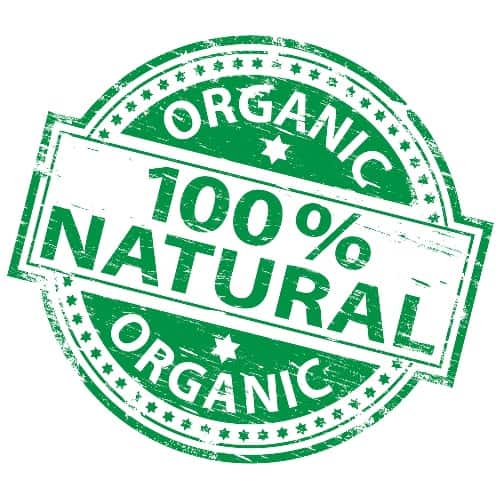
Now that you’ve heard of the pros and cons of organic food, doesn’t organic sound “natural” already?
Well, you might be surprised since there are also natural foods other than organic food. So, what’s their difference?
Well, depending on where you live, there are no distinguishable characteristics as to how to determine that a product is “natural”.
For instance, in the United States, neither the Food and Drug Administration (FDA), nor the United States Department of Agriculture (USDA), have any labels for natural foods.
This makes it easier for different food companies to claim that a food is “natural” since they can easily put stickers on it and sell it on groceries, despite it being filled with processed additives.
On the other hand, organic food undergoes a system wherein of strict protocols under the eyes of health authorities.
They make sure that all of the products that will be sold are free from pesticides, herbicides, toxic fertilizers, and GMOs that were possibly used on the plant or animal.
Purchasing Certified Organic Food
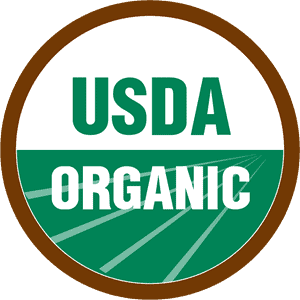
Depending on where you live, the common places to buy organic food are from supermarkets, health stores, and retail organic food markets.
However, it is extremely important to know if what is being sold is really “organic”. Thus, the role of recognizing labels comes to play.
For instance, the logo on the left represents the USDA’s label for certified organic foods.
According to Miles McEvoy in 2017, products with organic to 100% organic materials use this logo to differentiate the categories of organic food.
On the other hand, products labelled made with organic and organic ingredients cannot use this logo as only some of their ingredients can be considered as organic.
Organic Food Pros and Cons: Conclusion
It is important to remember that organic food is an overall healthier alternative. It is proven to be cleaner and cruelty-free due to the strict protocols upheld by organic farmers and health authorities.
For this reason, it is advised that meat from animals such as poultry, eggs, and dairy are better purchased organically.
Nevertheless, if you’re wary about the budget that comes with the organic lifestyle, a low consumption of organic foods, such as fruits and vegetables, will not have an impact on your diet.
I personally choose the best quality fruit and veg I can get for the money I feel it’s worth.
Organic fruit and veg is not the only clean alternative though. If you have access to your local farmer’s markets and trust their produce then this can be a great option for you too.
However, if you are someone who is looking for additional nutritional benefits such as higher vitamin C levels, then you might want to consider organic foods since the prices between conventional and organic foods are only minimal (especially for fruit and veg) while the benefits of consuming clean food these days are priceless.
Related Posts:
Top 5 Alkaline Supplements To Have With Your Smoothie or a Juice Everyday
7 Clean and Healthy Snacks On the Go (When You Don’t Have Time To Make Your Own!)

